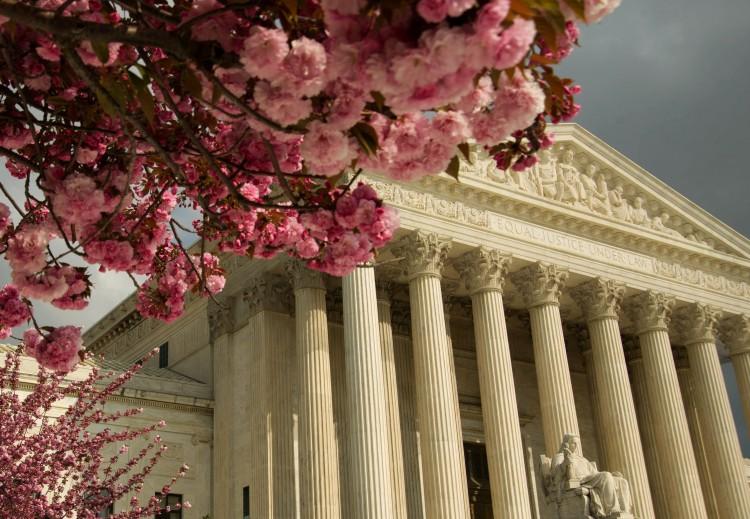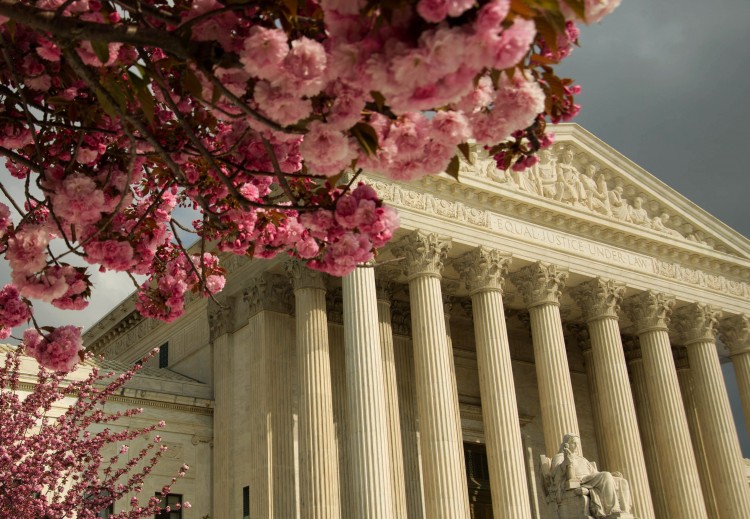The Supreme Court announced on Monday that it will hear an appeal to decide whether rights groups may challenge the government over its foreign surveillance program.
The case, James R. Clapper Jr. v. Amnesty International USA, involves the federal government appealing to the court to establish whether the plaintiffs in the original case (Amnesty v. Clapper) could demonstrate they were harmed; whether they have the right to even bring the lawsuit.
The American Civil Liberties Union (ACLU) filed suit in 2008 on behalf of journalists, human rights groups, lawyers, and others. Plaintiffs include Amnesty International, Human Rights Watch, PEN American Center, media organizations, lawyers, and other NGOs. Amnesty and the ACLU want the court to consider if wiretapping powers amended in 2008 are unconstitutional.
The groups charge that warrantless wiretapping of people overseas, authorized to prevent terrorist attacks, may be applied to legitimate communications.
According to the ACLU, a Freedom of Information Act (FOIA) lawsuit it filed revealed information the government had found in twice-yearly reviews that the National Security Agency had “'compliance incidents’—suggesting either an inability or an unwillingness to properly safeguard Americans’ privacy rights,” according to a summary on aclu.org. No details of the compliance incidents were given.
A U.S. appeals court in New York ruled in 2011 that the plaintiffs have the legal right to challenge the 2008 amendment, recognizing that the ACLU’s clients had reason to fear their communications were being monitored—this even though the government was not suspected of any wrongdoing, according to a statement from the ACLU.
It is this ruling that is being challenged in the Supreme Court by the Obama administration.
“The appeals court properly recognized that our clients have a reasonable basis to fear that the government may be monitoring their conversations, even though it has no reason to suspect them of having engaged in any unlawful activities,” Jameel Jaffer, ACLU deputy legal director, said in a statement. “The constitutionality of the government’s surveillance powers can and should be tested in court.”
The Justice Department previously said the plaintiffs had no standing to sue, because there was no proof they had been hurt. It also said the NSA may keep secret the details of who it is investigating.
The rule that plaintiffs are challenging is called the FISA Amendments Act of 2008. They want the act to be amended to be more transparent, to only focus on criminal suspects or potential terrorists, and to require restrictions on how long information is kept and how it is used.
Some media organizations claim that the new rules forced them to expensively change the way they work with sources, and that they have been harmed by increased operational costs.
Rights groups complained the potential for surveillance could have a chilling effect on victims of human rights abuses. The plaintiffs, who would not legally be subject to surveillance at all, say that their legitimate international communications may make them targets for NSA intelligence gathering.
It is already illegal to eavesdrop on the kinds of groups included in the original lawsuit. The government has not said if it eavesdropped on any of the plaintiffs.
Supreme Court opening arguments for the case are tentatively scheduled to begin in the fall.
The Epoch Times publishes in 35 countries and in 19 languages. Subscribe to our e-newsletter.






